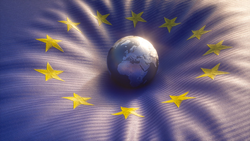June 25, 2019
Breaking news

Le 24 juin 2019, le Régulateur irlandais a publié un rapport visant à participer à la consultation publique lancée par le ministère de la Communication, portant à la fois sur la façon dont il convient de transposer la directive européenne sur les services audiovisuels et sur la perspective d'une loi nationale sur la "régulation des contenus dommageables sur les plateformes en ligne".
Pour le Régulateur, le rapprochement des deux actes législateurs offre une opportunité d'une régulation globale des "médias en ligne", offrant à l'internaute une "sécurité" que la simple transposition de la Directive ne permet pas. Ainsi la seconde loi complétera la première.
Pour le Régulateur, la loi nationale à adopter doit permettre au Régulateur de donner une pleine sécurité à l'internaute irlandais ("online safety"), en retirant les contenants violents ou dommageables (le terme harmful est difficile à traduire par un seul mot en français) et en l'avertissant à propos de ceux-ci.
Comme l'explicite le rapport (p.52) :
The BAI considers that the following four strategic objectives and responsibilities are relevant for an online safety regulator operating within the new media regulatory structure: • Rectifying serious harms occurring to Irish residents through their use of online services. • Ensuring that individuals and members of groups that are frequently subject to harmful online content can fully benefit from digital technology and social media. • Reducing online harms by introducing online safety rules for online platforms. • Promoting responsibility and awareness of online safety issues among the general population and industry. To fulfil these objectives and responsibilities, the BAI considers that the Online Safety Regulator could have the following three functions:
1. Operating a statutory mechanism to remove harmful online content that directly affects Irish residents (Rectification of Harm)
2. Developing and enforcing an online safety code for Irish-resident online platforms (Minimisation of the potential for Harm)
3. Promoting awareness of online safety issues among the public and industry (Preventing Harm). Ensuring that online services play a more effective role in tackling online safety issues can provide wide, “collective” benefits to large numbers of individuals simultaneously.
Visant expressément Youtube et Facebook, qui en Europe ont choisi de se localiser en Irland, le Régulateur demande une Régulation des plateformes de partage de vidéos qui doit, à travers un Code s'appliquant à eux, permettre de régir leur activité qui se déploie à travers toute l'Europe. Ce Code aurait vocation à rappeler en premier le principe de la libre expression. Tout en organiser la "sécurité en ligne" de l'internaute.
Le Régulateur irlandais des Médias sera en charge de cela. Et puisque les opérateurs sont localisés en Irlande, ses conceptions et ses actions auront donc un effet européen : comme le dit le Président de l'Autorité de Régulation lui-même : " This is a particularly important issue for this country, given that many of the majoar international platforms are based her. Ireland has a unique opportunity - and responsability - to lead the debate and chart the way forward in relation to online safety and regulation".
____
"to lead" ?
Il n'est pas certain que les autres régulateurs nationaux ni la Commission européenne partagent une telle conception irlando-centriste de la régulation euroréenne des médias.
Dec. 15, 2014
Breaking news

The European Directive of 22 October 2014 ot the European Parliament and of the Council as regard disclosure of non-financial and diversity information by certain large undertaking and groupe comes from afar.
Some present it as a step of an "irrestible rises of Corporate Social Responsabilité. This text would be a a "step forward" and a "strong signal".
It is true the Directive of the European Parliament and the Council follows a consultation conducted for several years by the European Commission on the subject of Social Responsibility. Whatever might have said the "stakeholders", the Directive contains the same lines tham the European Commission Communication of 13 April 2011, adopted on 25 October 2011 on the topic.
It is difficult today to oppose "Hard Law" and "Soft Law": Law hardens gradually. Thus, from the "communication", we went to the "resolutions", whose status remains uncertain, both a communication firmer but less binding than a law, since resolution is only for its author ... Thus Parliament in its resolutions of 6 February 2013 'resolved' to design an "inclusive" vision of the corporate action, to dance together profitability and social justice. To get by, it must suffice to say that the Social Responsibility Company is "multidimensional" ... Guidelines of the European Commission (non-binding) will explicit. Wait and see.
Following a series of obligations on information that companies must make available "to the public and authorities." Thus, companies must do the work instead of public authorities themselves. The provisions relating to non-financial information are mandatory and standardized. They are particularly demanding on the environment.
But when the text provides more substantial obligations, such as making the activity business less polluting, the Directive simply ask the member states to encourage companies to adopt "best practices" in the field. The market itself is incitative, in particular for making boards of large corporations more diverses. Because the principle is the belief that "investor access to non-financial information is a step towards achieving the goal of effective .... Europe in the use of resources," in a regulatory context of a "smart, sustainable and inclusive" growth".
Updated: Feb. 2, 2012 (Initial publication: Jan. 5, 2012)
Thesaurus : Doctrine

Updated: Dec. 19, 2011 (Initial publication: Dec. 19, 2011)
Thesaurus : Doctrine

